In a spin-off from our extremely popular Young Blood Sommeliers series, we are proud to present The Old Bastard Sommeliers, who will be running in alternating episodes to our ongoing YBS interviews, well, that is if these Young Bloods can get their acts together to complete the interviews.
This sure-to-be-entertaining series will focus upon in-depth extended interviews with some of the more infamous veteran characters in the scene, examining where they got their first start, who inspired them, how (through their skills, eccentricities, and perversions) they developed into the legendary figures they are today, and what tips and tricks they would pass on to the young bucks who are occasionally making them feel like relics of a bygone age.
This month we speak with the marvellous Lisa Fenn, Sales Director for Andrew Peller Ltd…
Lisa Fenn: Okay – before we begin, I need to call out and lobby for a name change – “Old Bastard Sommeliers” – not loving the moniker! How about “Dame Sommeliers” instead? I will leave that with you to ponder.
Good Food Revolution: Fair enough, seeing as it’s you!
So Lisa, what is it that you are doing these days? (Please be specific re: what you are working on right now/title/responsibilities etc.)
Lisa Fenn: It is a strange time to answer this question. I think that I am doing what everyone else is, staying at home and doing my best to flatten the curve. I live rurally so pre-COVID I could work from home and not see anyone so in many ways – my life has not changed, except that I now never leave the house other than to go for a run or walk the dog.
Professionally I am continuing to work from home in my role as Sales Director at Andrew Peller Limited. Our team and sells to the LCBO, Grocers and licensees in Ontario. Wines include Trius, Peller Estates, Wayne Gretzky Estates, Thirty Bench, Sandhill, Black Hills Vineyards, Tinhorn Creek, Gray Monk, Red Rooster. We also represent international suppliers like Wagner, Copper Cane, and Cordoniu brands to name a few. And Small Winemakers Collection with their own import portfolio focused on licensees and private consumers is also part of our team.
GFR: When did you first decide that you would like a career in wine?… and was it with a view to becoming a Sommelier? What was the attraction?
LF: As a kid I spent a lot of summers in Germany. My mom is from Baden-Württemberg not too far from Stuttgart which puts you smack dab in the middle of Württemberger wine country. We would go to wine “Fests” and sit shoulder to shoulder with strangers Schunkeling (swaying with your arms locked) side to side singing songs with a quarter litre green handled wine glass (ein Viertel – which looks more like a wine mug than a glass) in our hands. Of course, I was not drinking wine at the time but as I got older and continued to visit my family, wine made its way to my glass.
I went on to study, live and work in Germany in the south and the north, completed an International M.B.A. and started working for a Germany cosmetics company in Canada. I would visit Germany and my family a couple times a year, drink wine, eat great food and romanticize about doing something in wine.
GFR: Now I know that you started off in a totally different career… What was it you were doing previously? And why the career switch? Where did you get your first start?
LF: Yes well, as I mentioned, I worked for Schwarzkopf in Hamburg and then in Canada and it was a lot of fun. I met many talented, creative people who loved what they did in the hair care industry including meeting Vidal Sassoon. The problem for me was that I was not so fussed about hair and fashion. Something was missing.
By this time my children were young and I was struggling to balance it all. My husband, David, and I decided to move to the country and I was commuting a ton. Sometimes you are doing something, and you can’t imagine doing anything else and then a thought germinates and blossoms about what else you could be doing. That’s what happened to me. I kept thinking about wine. About doing something that I was passionate about…
I joined Vincor in the spring of 2004 as part of the On Premise team. I was in heaven. I think what I liked most was the hospitable nature of it all. I had always been in sales and you build up some armour, what I found so surprising is that in calling on licensees, the first thing I was offered was a seat, refreshment, sometimes a snack – I found it a little overwhelming at first.
GFR: And from that formative experience where did you go from there? Tell us about your history in the wine industry?
LF: I was with Vincor (now Arterra) for almost 7 years. When I left, I was the Director of On Premise for Ontario and had an amazing team and loved what I was doing. I met some of my closest friends in the industry while I was there. The company went through a re-organization and I was let go. That was tough. This is the part where you thank goodness for your education, network and family and don’t give up on what you love – just park it for a bit to make ends meet.
So, I did something completely different and joined Target. Leaving the industry was tough but my husband was my biggest cheerleader. Every day he would say to me, “You are in retail boot camp”. Trial by fire. Filled with learnings. Then a head-hunter called me. He was recruiting for Diageo, I jumped at the chance to get back into the industry, little did I know……
After my short stint at Diageo, I joined Andrew Peller and have been here for five years. Fit. Small word, big significance. I believe I have found it again.
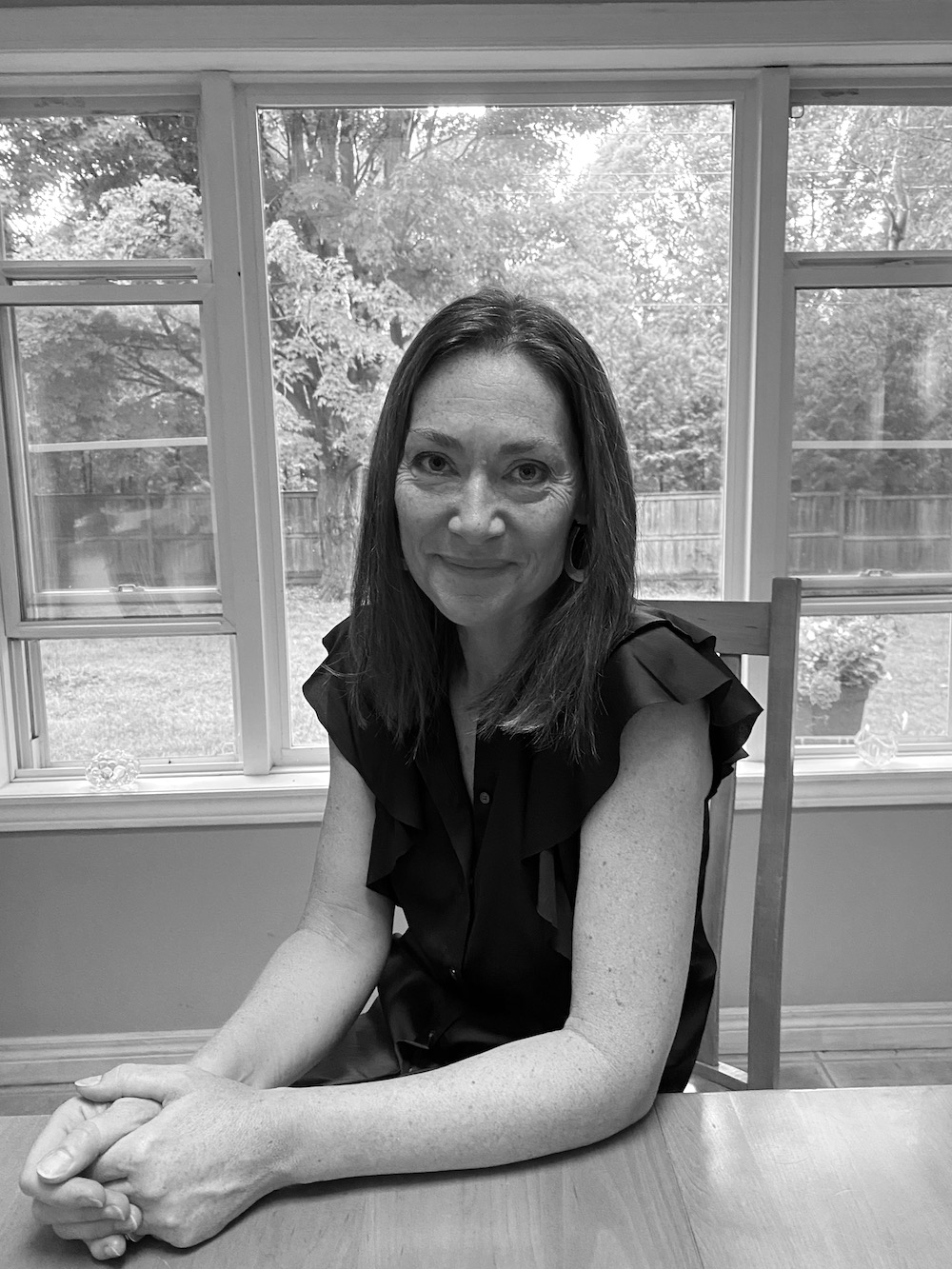
Dame Sommelière Lisa Fenn graces us with her insights in this month’s Old Bastard Dame Sommeliers interview.
GFR: And what were your most memorable gigs over all that time?
LF: I was thinking about how wine has always been a part of my life, even during university. After McGill, I went to Dalhousie to get a Russian Language Certificate – one semester in Halifax, one semester in Russia. While in Halifax, I worked at the Silver Spoon. I was hired as the host and wine person. I say “wine person” as I was not a somm at the time, nor was I really an expert (unless you count the Schunkeling at wine Fests in Germany). But I was a hard worker and a quick learner. I had worked in restaurants/bars to fund my undergrad, but this was my first experience with finer dining. I loved it. The food was beautiful, and the wine list was solid. I learned to serve wine. Nerve wracking at first and then, once I got the hang of it, great. I would like to think that this experience keeps me humble. For all the times I am out for dinner and the server is struggling with the wine service, it reminds me of The Silver Spoon. You have got to start somewhere.
GFR: What’s the story behind your formal wine education? And with considerable hindsight do you feel that this was the best route to where you are today?
LF: When I decided that I wanted to get into the industry, I researched wine education and found ISG (International Sommelier Guild). I took level one and two. Peter Bodnar-Rod was my teacher – I was astounded by his passion and enthusiasm – it was infectious. I did not take the level three as work at Vincor was too busy, so I waited.
A few years later, speaking with different somms – I heard more and more about CAPS (Canadian Association of Professional Sommeliers) and decided that this was the program for me. What was particularly appealing was the modular approach as well as the stage.
GFR: Have you ever been in a wine biz situation and begun to really feel your (relative) age? And if so, why?
LF: Ageism is rife. Full stop. I think how you combat it is by showing up at your best, always. And here I will say something which you may interpret as cliché, it’s tougher for women. The judging for sure. I think you need to arm yourself with information, a good dose of confidence and perhaps some blinders as well (for the judging).
What I like about wine is that it’s a level playing field, in that you can be early in your career or later on and what has brought you together is your love of wine. It is a great equalizer.
GFR: Along the way, who inspired you the most? Did you have any mentors? And what did they do that set them apart from everyone else?
LF: When I was working for Schwarzkopf traveling all over Canada, I sat beside an English gentleman on one of my flights. We got chatting and he told me that he was a writer in the wine industry. I remember thinking how interesting it all sounded. I also remember how kind this fellow traveler was to me. That person was Tony Aspler. I think I told Tony this story at an event once but he meets many people, so it was more memorable for me than him. He has been a great supporter of the wine industry in Ontario and Canada. And always a gentleman.
I have already mentioned Peter Bodnar-Rod – he is a superb educator. I believe that Elsa MacDonald is definitely an inspiration – her dedication and commitment to achieving her MW is awesome! Danielle Giroux, who now heads up California Wines for Canada is one of the brightest people I know in this industry.
GFR: Were there many transferable skills from your career in the world of hair products?
LF: Hair and cosmetics to wine – yes – lots of transferable skills as I was selling and once you have a solid sales foundation, you are well positioned to sell in other industries. The great differentiator was that I was passionate about wine and less so cosmetics so that made the job exciting and fun!
GFR: So what makes for a good agent/supplier/merchant in your mind?
LF: Consistency, dependability, listening & follow up skills and a portfolio, whether it be 10 wines or 100 that she believes in.
GFR: How do you feel that the industry has changed since you first started all those years ago?
LF: This is where I must ask the question – is 16 years a long time? I am a bit of a hybrid in that I did something completely different for the first part of my career.
So what is different from 16 years ago? Social media most likely. The instant response to a meal, wine, service can be a boom or bust for a restaurant, server, sommelier.
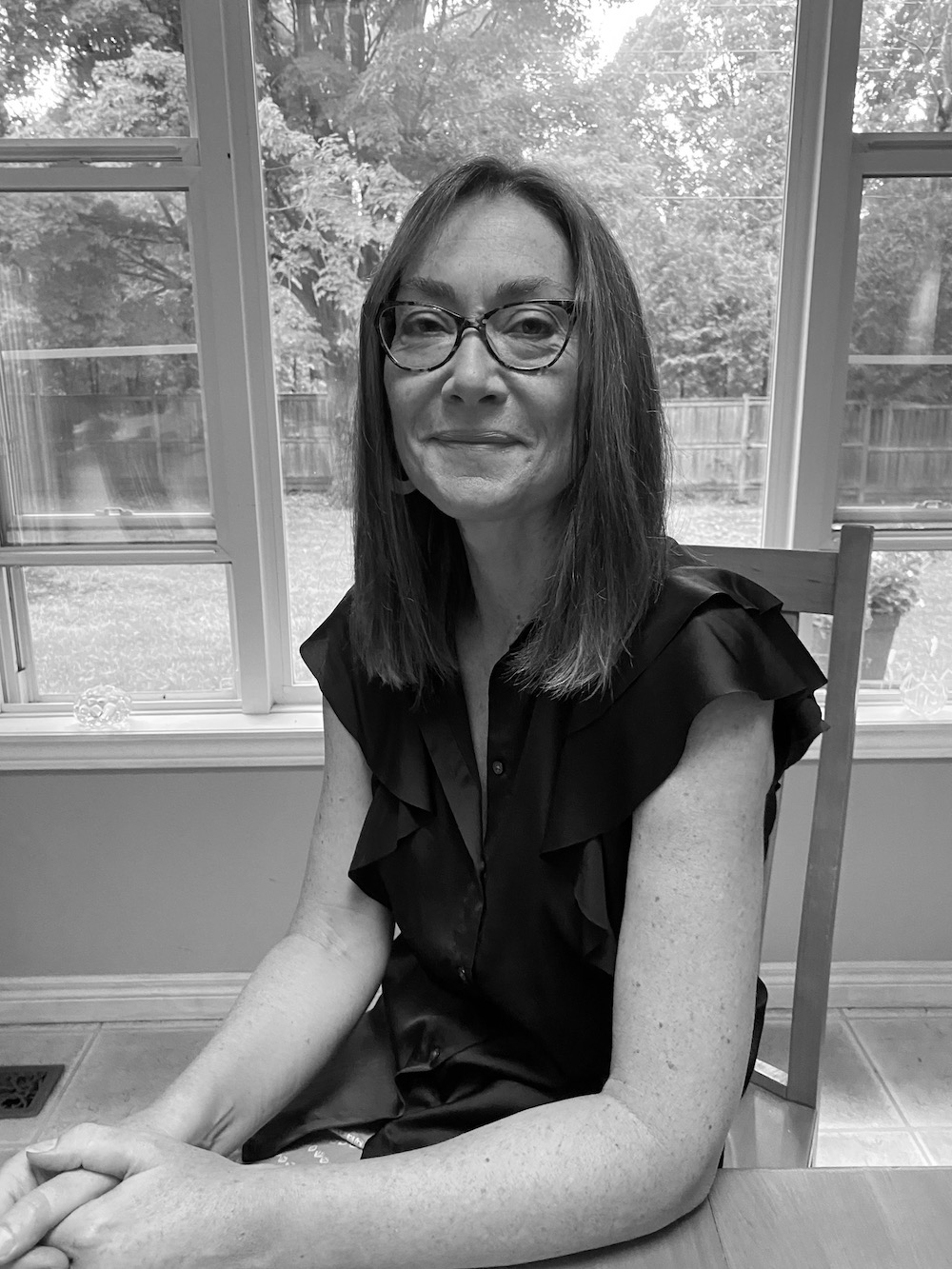
Dame Sommelière Lisa Fenn graces us with her insights in this month’s Old Bastard Dame Sommeliers interview.
GFR: And how has Toronto changed as a wine city?
LF: Better local representation.
GFR: How would you compare wine culture in Germany to wine culture in Canada? Both back in the day, and today?
LF: Wine is part of life in Germany. It’s the first thing I am offered when I walk in my friends’ / family’s door. Wine Fests happen throughout harvest (and in the summer too) and Vintners in Württemberg can open their doors to sell their wine and serve simple food on a rotating schedule throughout the year (aka Besenwirtschaft). I learned to love wine in these establishments along with tremendously improve my Schӓbisch (local dialect). Even with COVID – this locales are now slowly starting to reopen.
In Canada wine drinking used to be fussier. What I mean is that it used to be more of a big deal. Now I think we are evolving to wine for every day and not just with a special meal. People are more informed and apps like Vivino help demystify wine.
GFR: What were the top spots for wine back when you started getting involved in the business?
LF: Well Jamie, at the risk of embarrassing you, Jamie Kennedy’s Wine Bar on Church was a superb spot for wine. The list was fantastic and allowed you to taste by the 3-ounce glass a whole host of wines.
GFR: Thank you! Looking back in hindsight there are a lot of things I would have done differently, but I’ll certainly take the compliment.
And where do you feel does a good job wine-wise these days? Restaurants, Wine bars etc. And what makes them stand out from the crowd?
LF: I live closer to Hamilton and I am excited by what is happening in this city. The restaurants along King William St. and James St. North are on my “go to” list. I love the feeling of this area – a bit raw but things are happening, and I can still find street parking. A few names include Berkeley North, Mule, Earth to Table, Born and Raised – all have tight menus and wine lists which makes deciding easier (okay – I am not drinking wine at the Mule but the restaurant has a great vibe and the brussel sprout taco is scrumptious) and the experience is relaxed.
GFR: What with you working for Andrew Peller, and other Canadian vintners over the years, how do you feel about Canadian wines? And how have you viewed their evolution since your early days in the industry?
LF: I love Canadian wines. I love them even more than I did when I started. I believe that many wineries are standing on the shoulders of some great pioneers.
GFR: What do you think that we do well here in Ontario today?
LF: Still wines: chardonnay, sauvignon blanc, cab franc. Sparkling – traditional method sparkling with traditional grapes and blanc de blanc. Ice wine: Canada is the largest producer of ice wine – I believe that Vidal is scrumptious as is Riesling and Cab Franc ice wine.
GFR: And what do you feel we should really give up on?
LF: Hmmmmmm. Well, I mean, I like the experimental varietals e.g. there is some Lemberger planted in Niagara and some Italian varieties in the Okanagan but not sure if this is something we should do in a larger scale – I do feel like we should keep experimenting as wine and consumer tastes change and we want to keep our industry commercially viable. So, I am less inclined to say “stop making x wine and x variety” as the consumer never ceases to surprise me with what they like.
Stylistically, I struggle a bit with appassimento and how it has taken hold in Ontario but to be honest – I do not really drink Amarone or Ripasso wines either.
GFR: Yes, I can understand where you are coming from.
How do you feel about restaurants support of our local wine industry? How has that changed since your early days?
LF: Restaurants have increased their support of local over the years – there are many who have been supporters from the beginning – John Maxwell, Allen’s, comes to mind. I think we still see restaurants that do not list ANY local wine. It’s so weird. Why not? The consumer genuinely wants to support local. I mean, when I go to a restaurant in Germany, France, Italy, Oregon, California -there is always local wine on the list. I find it puzzling.
GFR: Just as there is from everywhere in the world, there is quite a lot of dreadful wine coming from Canada (BC, Ontario et al.) also. How do you feel about the issue of people simply promoting something because of it being local, and not because of its quality?
LF: Agents come with samples and are eager to taste with buyers (pre-COVID – it will be interesting to see how we solve for this right now – maybe it’s about trusting your agent/sales rep and their palate). Yes, life is too short to drink dreadful wine and you certainly don’t want it on your list just because it’s local. That’s not the point. But fostering trust with your wine supplier and holding them accountable to what they sell you is part of the yin and yang of the buyer-seller relationship. I also think that you get what you pay for. If you are buying a local wine for dirt cheap, then you have got to know that it’s plonk as would be the case for a dirt cheap Italian, Argentinian, Chilean etc…
GFR: And what’s your take on this natural wine thing? And why do you feel it is even a “thing”?
LF: Health, well-being, mindfulness, better for you – now even more so. People want to know what they are drinking. What they are putting in their bodies. Perhaps that is the reason for the potential natural wine trend.
GFR: How aware of wine were you whilst growing up? Were you around wine from an early age?
LF: Yes. Early days in Germany. Too many Wein Fests to mention.
GFR: Can you remember your first taste of wine? I think you told me that it was back in Germany?
LF: Yup – Trollinger, yum (at the time)…now I can’t drink it.
GFR: When do you feel children should be introduced to the wonderful world of wine? How did you introduce yours to the stuff?
LF: Interesting question. If you can teach the appreciation of wine – it’s fun and yet it’s a fine line. Wine is alcohol. It should be respected. It’s part of the meal for me and my children grew up with that. It also is a great way to talk about history and geography. That’s where I started and then progressed from there. At 21, my daughter, is curious and experimental with wine. At 19, my son is more interested in quaff-ability. Knowing you kids is part of the journey.
GFR: The Sommelier world is notoriously full of pretentious arseholes, and after seeing that film Somm a few years back I still worry about the emergence of a new Wine Bro culture… also, I recently picked up on a LOT of that from the mixology crowd, full-on Jordan Peterson fans and all that stuff. I’d love to hear your thoughts? There have always been pretentious arseholes, right?
LF: Richard Betts resignation from the Court in the U.S. might help the industry re-think itself. Recognizing that there’s a long way to go is step one. There will be little room for exclusionary, snotty behavior in today’s time. That is a good thing. Humility is a wine aficionado’s, connoisseur’s, sommelier’s best friend. Aren’t we interested in discovery? Have you ever learned from a teacher who was supercilious, condescending, exclusionary “know it all”? Why would that be okay in the wine world?
GFR: Do you cook yourself? What’s your favourite dish to cook these days?
LF: I bake. I can cook but my husband takes the lead. He is amazing at it. Our weeks are filled with Taco Tuesdays (usually Fish), Pizza Fridays (home made), hand rolled pasta whenever, Tikka masala, BBQ Burgers and we are working on “meatless Mondays”…. Pedestrian as it may sound – I love to bake chocolate cakes – I have a “go to” recipe from Anna Olsen that I love and honestly – her recipe for Chocolate Chip cookies is the best – secret ingredient is corn starch.
I also bake German desserts. Aprikosen Kuchen mit Sahne (apricot cake with fresh whip cream) is one of my favourites!
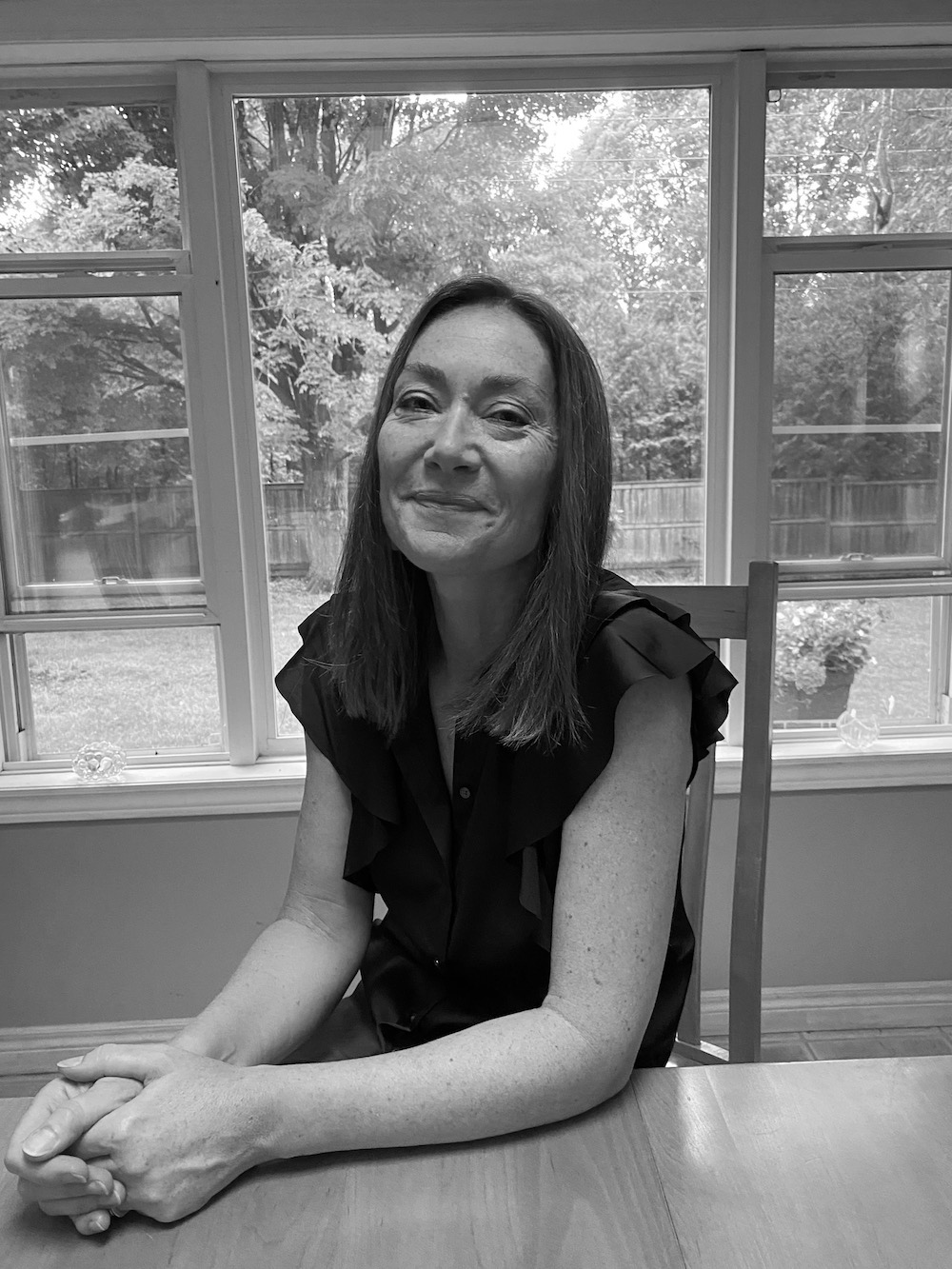
Dame Sommelière Lisa Fenn graces us with her insights in this month’s Old Bastard Dame Sommeliers interview.
GFR: Do you feel that there is a good Sommelier community in Ontario? And how was it when you started in the business?
LF: I think we could be closer. I believe we have organizations that are out there – CAPS comes to mind but we could have more involvement.
GFR: How often do you hang about with other Sommeliers?
LF: To be honest, I spend more time with winemakers right now.
GFR: I’ve heard so many of my peers say that they don’t do the big shows anymore, the big wine tastings. What are your thoughts on that?
LF: I love going out and connecting with the industry. Now with the way the world has changed, we will wax nostalgic for those mass gatherings.
GFR: What would you be doing if you were not doing what you are doing today? Back in hair?
LF: Oh gosh no! I left wine and then came back. If I wasn’t doing what I was doing, I would teach, I think
GFR: Do you have many non-industry friends… how do they feel about what you do for a living?
LF: Yes and they love it! Nothing like having a cork dork as your bestie!
GFR: What are your thoughts on blind tasting wine?
LF: Love it. Not to prove anything – just to sit, alone, with the wine and to focus on it. To evaluate the structure and taste by yourself. I love doing that. But not to ‘flex’. Just for me, by myself.
GFR: Are you a better blind taster with or without a bad hangover? I’m definitely the former…
LF: I don’t get hung over. Ha! I would be hard pressed to think of the last time. I kinda drink for taste and then things get dull so I stop. Gosh – that sounds boring………
GFR: Some of the best tasters I know are heavy smokers… What are your thoughts there?
LF: No idea. I hate cigarettes! The smell kills my nose. Makes me cough. Can’t stand the smell on someone’s breath either. There’s this visceral thing that happens to me when I meet someone and then find out that they smoke. Like a total let down.
GFR: What’s your current favourite wine region?
LF: It’s hot right now – so I am drinking a lot of whites and roses. Just before the heat – I was totally loving Chianti Classico. Why? Maybe because it is a comfort and with COVID and the world going crazy – I wanted something familiar. I have driven route 222 and the Gallo Nero signs are everywhere. Cliché perhaps but fond memories of my honeymoon.
GFR: When it comes to wine is there anything that you feel is, or always has been, overrated?
LF: Amarone.
GFR: Do you often drink beers, ciders or spirits? What do you currently enjoy?
LF: Yes. Beer. Anything local, so for me that is New Limburg (Belgian Blond or Wit). Wayne Gretzky Lager. On the import side, I love Weizenbier, so Erdinger. Also, Kronenburg Blond is so thirst quenching.
GFR: What’s your “house” wine at home?
LF: Right now it’s Trius rose. Oh – and Cono Sur Viognier was on sale recently and I picked up a bunch of it.
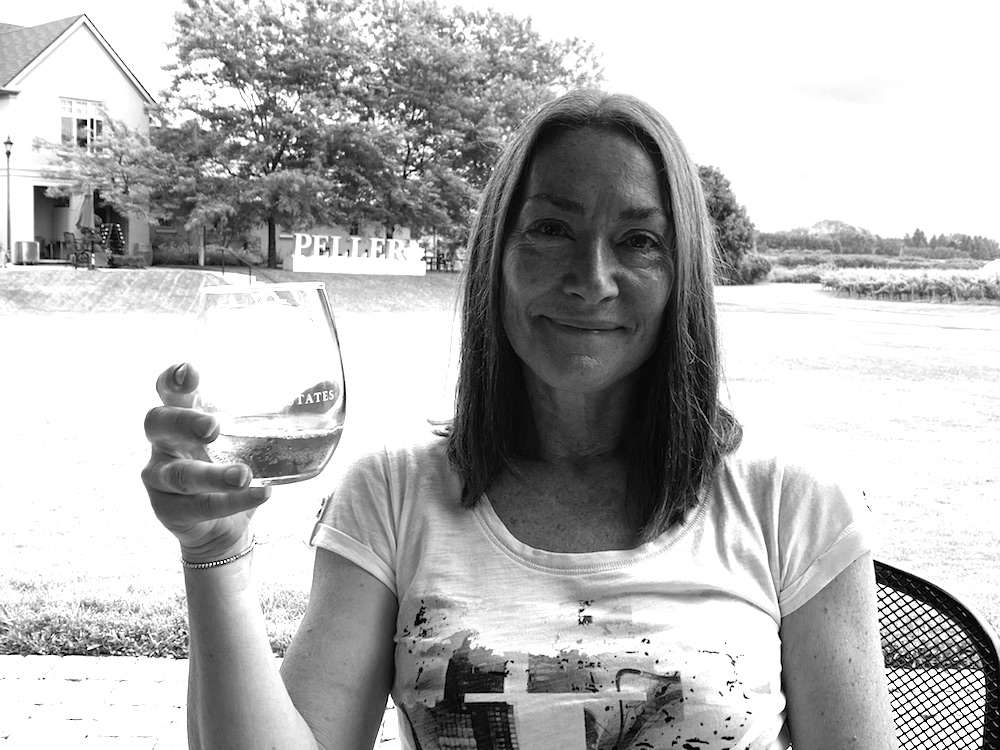
Dame Sommelière Lisa Fenn graces us with her insights in this month’s Old Bastard Dame Sommeliers interview.
GFR: What advice would you give to these young bucks? What sage wisdom can an old hand like yourself pass on to the younger generation of Sommeliers?
- Be nimble, creative and pivot quickly.
- Right now, this crisis may be an opportunity – be open to all possibilities
- Leverage and nurture your network.
GFR: If you could go back and have a word with the young Lisa Fenn as she started in the business, what specifically would you tell her?
LF: Be as open as possible to all possibilities. Imagine the impossible and go for it. Forget the rules.
GFR: And now the perennial cheesy question Lisa… If you were a grape varietal which would you be? and why?
LF: Ya, I gotta say Riesling. Structure, backbone, age-worthy, bright, a little biting and confident.
GFR: Thank you for taking the time, Lisa. Much appreciated. And no problem with the title change!
Edinburgh-born/Toronto-based Sommelier, consultant, writer, judge, and educator Jamie Drummond is the Director of Programs/Editor of Good Food Revolution… And he’s been thinking about interviewing Lisa for AGES.

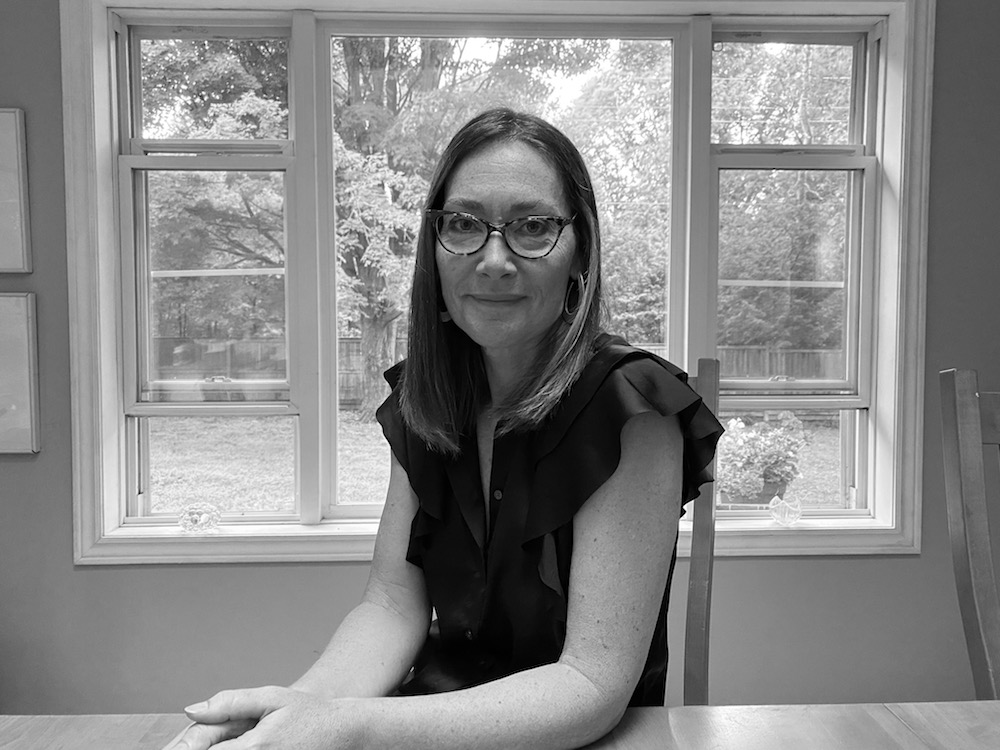


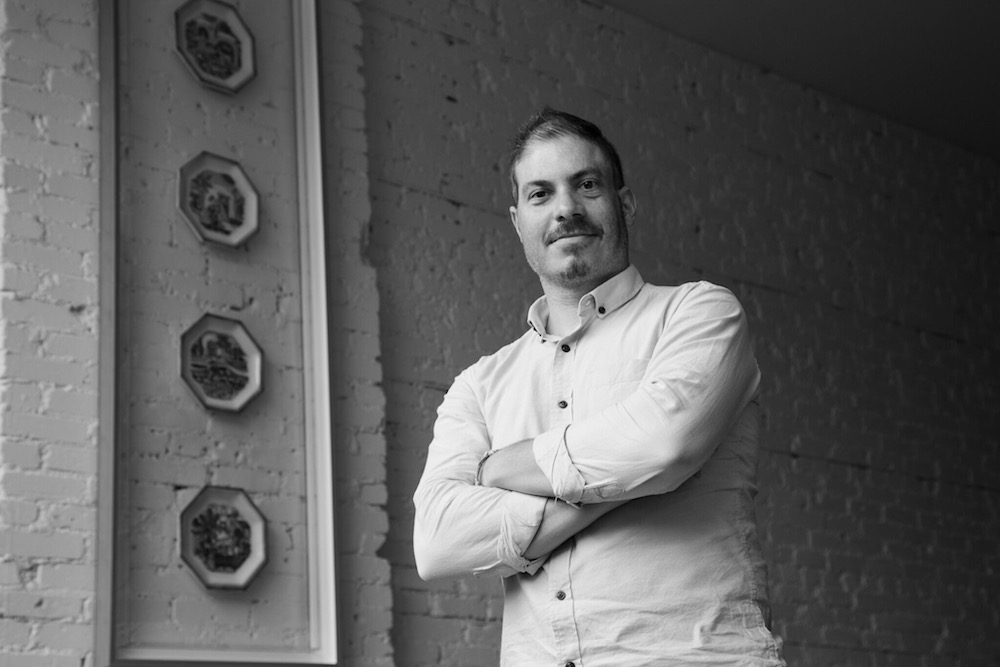
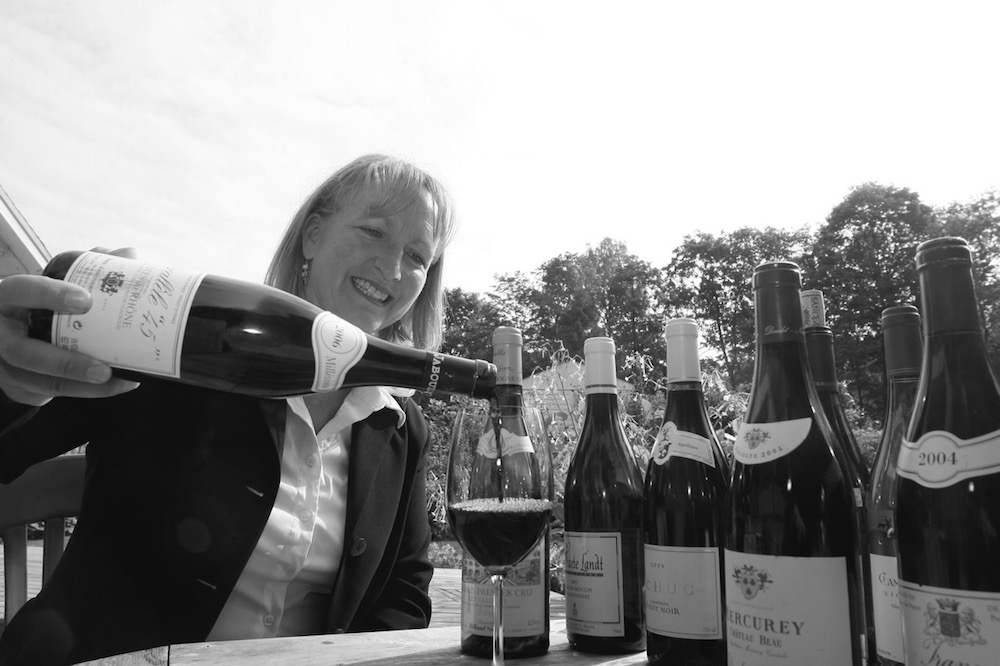

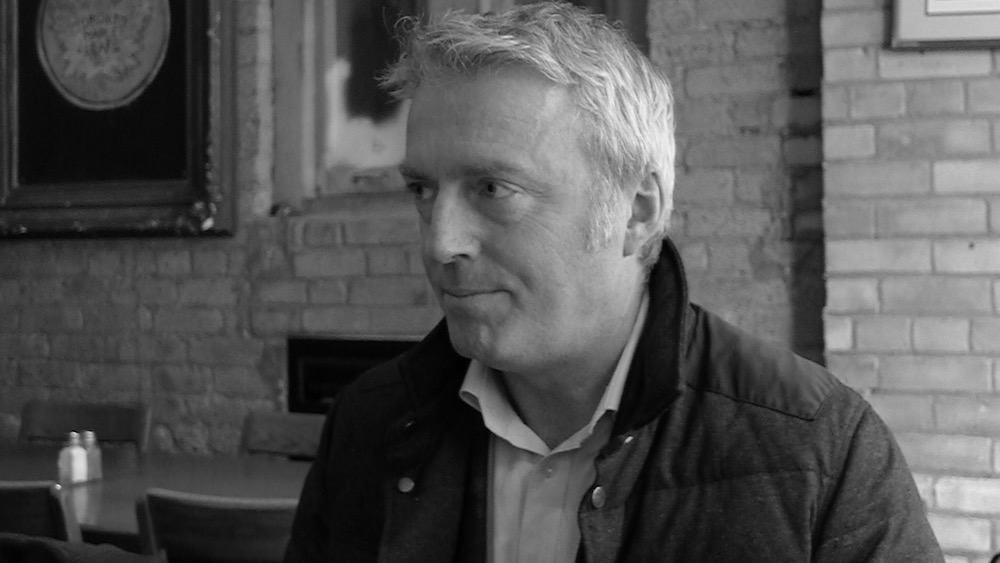

One of my favourites of the series thus far!